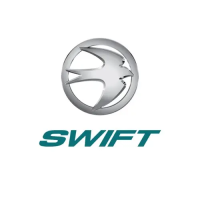17
GLOSSARY AND CHECKLIST
Driving licence
In order to be able to tow a caravan a driver
must hold a Category B licence. Those
car drivers who passed their tests prior to
1 January 1997 would have automatically
obtained Category B+E. However, anyone
who passed their test after 1 January 1997 will
need to take a further test in order to obtain
a Category B+E if they wish to tow a car
and caravan combination whose train weight
exceeds 3,500kg, or up to 4,250 if the caravan
is less than 750kg or if the caravan’s Maximum
Technically Permissible Laden Mass exceeds
the unladen weight of the car.
Note: The unladen weight of a car is
normally less than the kerb side
weight.
GLOSSARY & CHECKLIST
Awnings - Can consist of just a simple top
sheet but may extend to a five sided frame
tent attached to the side of the caravan.
Fire blanket - approved to BS 6575 is ideal
for dealing with ‘fat pan’ fires.
Fire extinguisher - It is strongly
recommended that a fire extinguisher is carried
in the caravan. (For suitable types see Safety
and Security).
Gas bottles - Bottled L.P. gas is the most
convenient portable source of fuel. Two bottles
are required for a constant supply.
An initial deposit is payable on each cylinder.
We recommend the use of 6kg Calor Light
Propane bottles. One position for use and one
for storage only. (For detailed information see
Services - Gas).
Jack - A suitable jack is essential (screw,
scissor, side mounted or air jack type).
Many car jacks are unsuitable. Ensure the
lifting capacity of the jack is suitable for your
caravan.
Levellers - Levellers help level the caravan
from side to side before unhitching. Proprietary
products can be purchased from your caravan
dealer and need to be positioned as indicated
by a spirit level.
Spare Wheel - It is always advisable to carry
a spare wheel with your caravan.
Spirit Level - A spirit level is extremely useful
when siting the caravan.
Stabiliser - Stabilisers help to dampen the
side to side movement of the caravan.
Torque Wrench - A torque wrench is the only
way that the exact recommended torque can
be achieved for wheel nuts and bolts. (See
Preparing for the Road).
Towing Bracket - Never use cheap
alternatives, obtain one manufactured by
a reputable company complying with the
relevant standards.
Any light passenger vehicle registered in the
UK on or after August 1st 1998 will require a
type approved towbar and towball (to 94/20/
EC). Failure to fit a homologated towbar and
towball could result in a prosecution and
invalidation of your insurance cover. Always
check with your car manufacturer or towbar
manufacturer if in doubt.
Wooden Blocks - Wooden blocks typically
25cm square and 2cm thick are ideal for
placing under corner steadies and jockey
wheel when the ground is uneven or soft.
Water Containers - Two containers are
required, one to carry fresh water to the
caravan and one for waste water, which needs
to be disposed of properly. Several types
are available including jerry cans, Aquarolls,
wastemaster, etc .
13 Pin Socket - One socket fitted to the
car to accept corresponding plugs from the
caravan this energises the road lights and
caravan auxiliary circuits.
12 Volt Battery - A deep cycling, heavy duty
rechargeable leisure type battery should be
purchased to provide back-up power for
lights and other electrical appliances. (See
Battery). The securing arrangements for the
battery compartment require a leisure battery
complying with EN 60095-2 in particular those
with ledges for fastening to the lower edge
of the long sides. The maximum battery size
that can be fitted is 225mm high, (including
terminals) x 175mm deep x 353mm wide.

